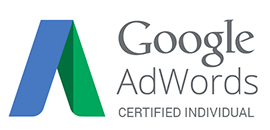
Greater Choices for the best Google Marketing Options
Every company has a brand, consciously built or not. There are hardly ever situations where a strong brand would not benefit. However, in a highly competitive market, conscious brand building can be a prerequisite for growth and survival. A strong brand has a lasting competitive edge. The brand itself brings customer value that is difficult to copy or replace, at least in the short term. From the google agency you can find the best deals.

Marketing strategy is about choices
A strategy is about choices, seeing the essentials and goals. Strategy tells us which battles we choose and which we leave to others. At best, a marketing strategy can be summarized on a single A4 page in a strategy map.
Creating a profitable marketing strategy is much easier when you have the necessary basic knowledge of your market and customer base as well as your current customers. In light of the information gathered and the intended business strategy of the business as a whole, a target state is created that can be achieved.
At its simplest, a concise marketing strategy answers the questions:
- What do we aspire to as a company? (vision)
- What justifies our existence? (Mission)
- How do we work towards that goal? (set of values)
- What are our marketing goals?
- Are the objectives realistic in relation to the current situation and the resources available?
- How do we measure the achievement of goals?
- What tools do we need to reach our goals?
- Who is our customer? And who isn’t?
- What is the customer problem we are solving?
- What is our promise to our customers?
- How do we differentiate ourselves from our competitors?
- How do we anticipate market changes?
A marketing plan is a daily tool
The plan is a guide map for achieving the goals set in the strategy. A good marketing plan is a concrete tool that guides the work of the marketing team on a daily and monthly basis. For example, the content of a marketing plan may include:
- Customer journey modeling and messaging at different stages
- The buyer persona Descriptions
- The marketing channels used, the channel-specific goals, and their role in the customer journey
- The marketing budget is broken down, for example, by customer journey and development of marketing tools
- Marketing human resources or affiliate agencies and their role in marketing
- Marketing tracking and metrics
- Yearly marketing clock
Technology brings leverage to marketing
Strategically capable companies have built business systems directly around the customer. From the point of view of an SME’s marketing technology, the following are essential:
- CRM (Customer Relationship Management System)
- ERP (Enterprise Resource Planning)
- Marketing automation system
- Online Service Platform or Online Store and Add-ons
Customer service systems
Ideally, these systems talk almost seamlessly with each other. It is rarely quite simple, but if you have good APIs in the software you are using, it is quite possible.
When data transfer between software is working, you can build a customer view that contains, for example:
- The first point of contact with the customer
- Customer behavior on the website
- Personal conversations with the customer
- Customer purchases a product and euro level
- Customer satisfaction after purchase
- Customer Recommendations
- Customer Repurchases
The system collects customer data and information on customer behavior and enables the data to be further processed to support business and marketing decisions. And with lightweight marketing automation, you can automate your marketing messages at the right time, when the customer’s need is right now.
